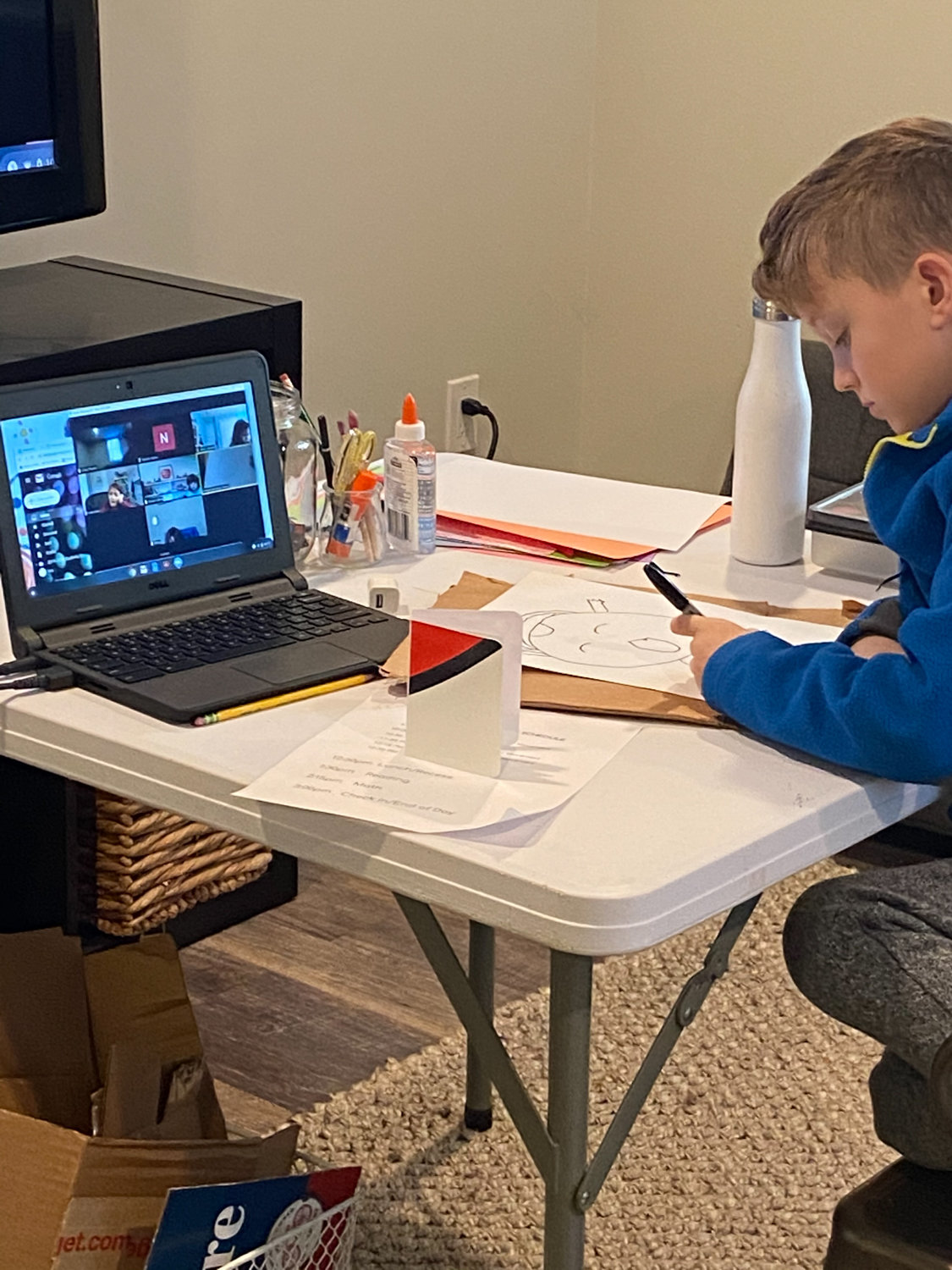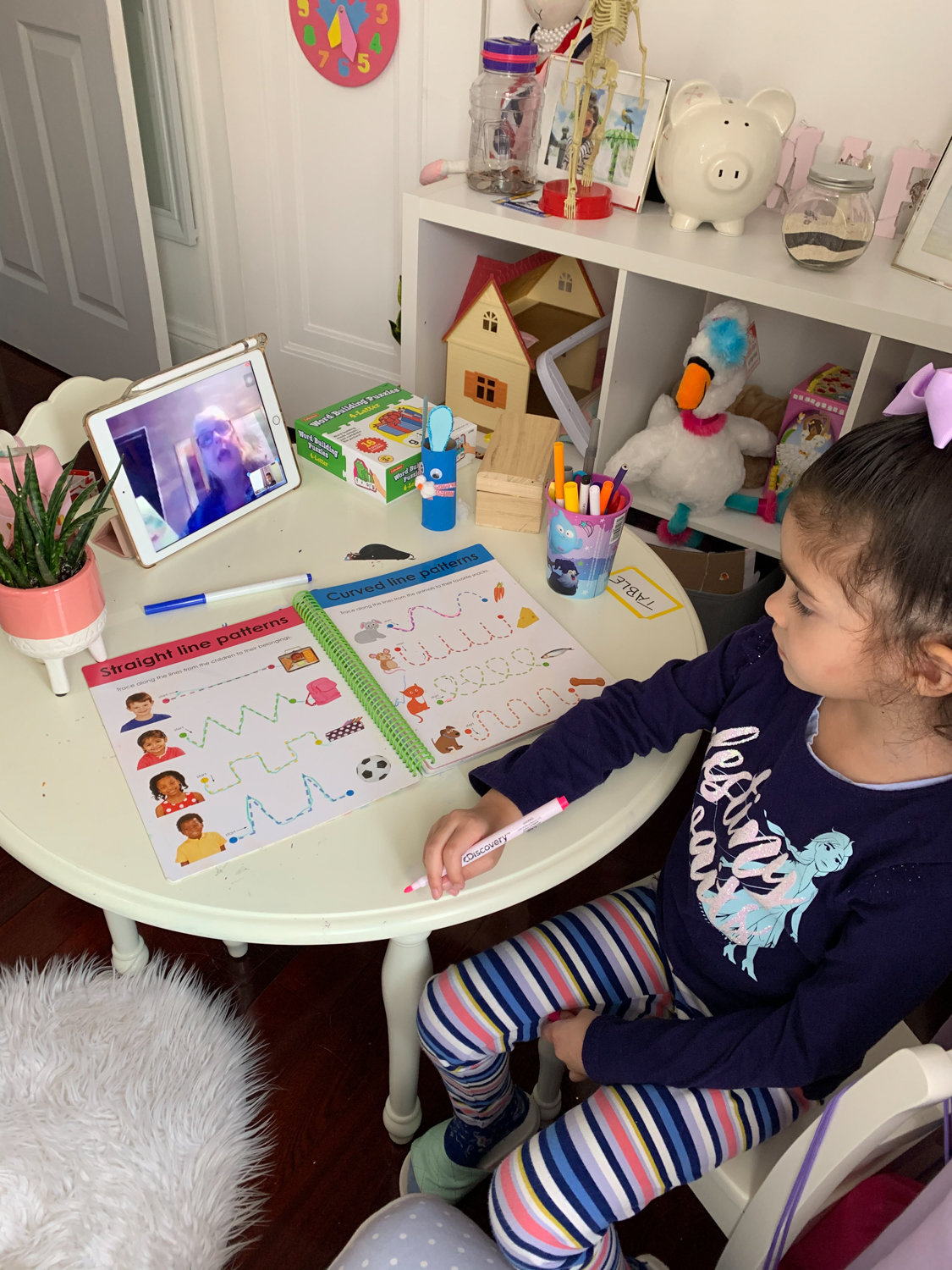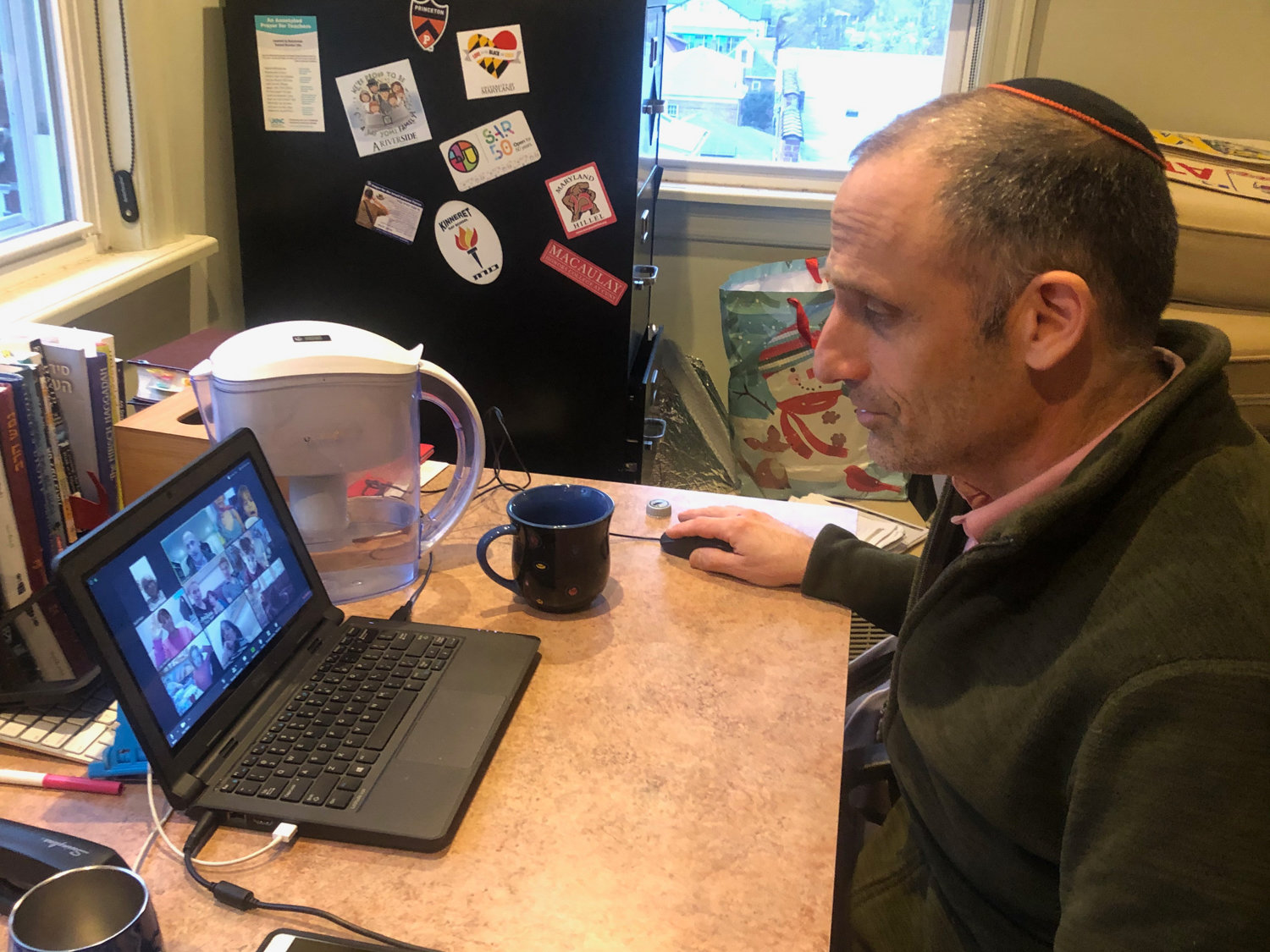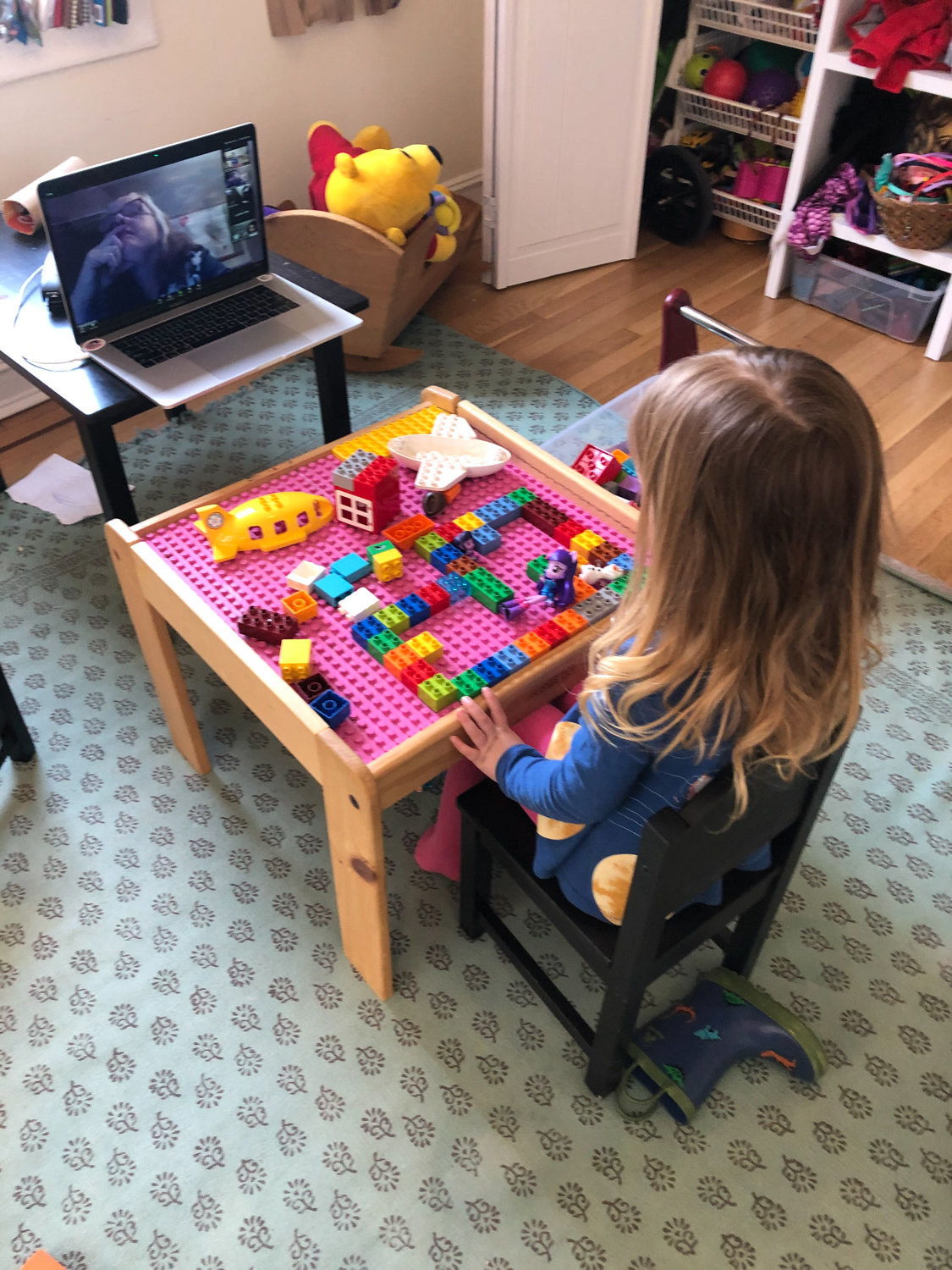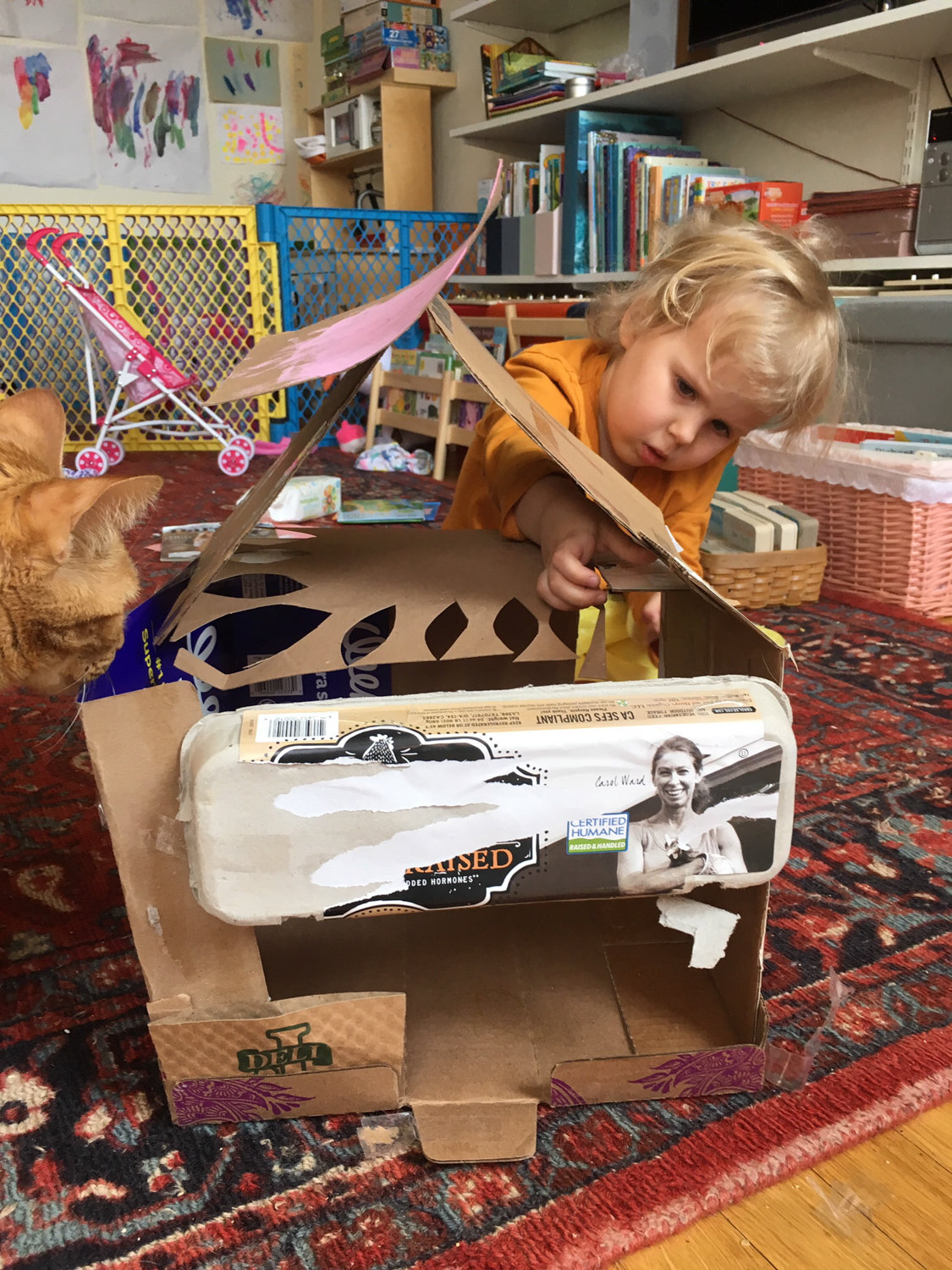Raising little ones during a pandemic? Oh, boy!
A city council meeting is probably the last place someone would expect to see a child. But for Councilman Andrew Cohen, his colleagues and parents across the country, these periodic drop-ins by their young children walking into a room where their father or mother is connected virtually to the rest of the city’s government are part of the new normal.
With the suspension of most child care services across the country — not to forget schools and preschools themselves — moms and dads must now balance their parenting duties with their run-of-the-mill work-related duties. And with both responsibilities occupying the same space, it’s no wonder they’re starting to feel overwhelmed.
“Those (parents) who have kids that are 3 and 4, they’re used to going to work and having teachers be with their kids during the day,” said Rabbi Aaron Frank, head of Kinneret Day School. “Now, they go to work, even if it’s in their bedroom or home office, and they have to make sure that their 3-year-old is eating.”
Just like how adults may find it difficult to get into a true “work” mindset at home, the same can be said for their young children. According to Tara Mastin, director of Riverdale Presbyterian Church Nursery School, preschools and other child care centers are built to facilitate as much independence for young children as possible. But it could prove difficult to replicate elsewhere.
“We’re able to set up scenarios for children to be as independent as possible, but it’s still supervised, and it’s still carefully guided and managed,” Mastin said. “And I think that at home, parents aren’t exactly comfortable with that level of independence, and homes are just not set up to be like that.”
In addition to only having one environment to conduct work and child care responsibilities, parents also may have difficulty explaining to their children why they are no longer going to school, going on playdates, or even leaving the house for extended periods of time. It might be especially difficult for parents to decide what and how much information about the coronavirus pandemic is appropriate to share with their children, especially younger ones.
According to Frank, it is really up to the family’s discretion in terms of how young children can understand their new reality.
“Some families like to tell their kids things straight up,” Frank said. “Some families feel very strongly that their kids aren’t ready for that. So I think that the challenge for teachers and administrators — all the time, but especially in this case — is to be able to strike that balance and to talk to kids about it, but do it in a way where most families feel comfortable.”
For Mastin, a good rule of thumb to follow is to be honest, but not to overshare details to the point where the child may be frightened or confused.
“If a child says, ‘’Can I go to school tomorrow?’ the answer is, ‘No, we can’t go to school tomorrow,’” Mastin said. “And if they (ask) why, then you come up with a ‘why.’ But if they don’t ask why, it’s not the time to go into the extended closure and the virus and flattening the curve.”
While all the extra time with family can be challenging for some, it can open up connections for others. Councilman Cohen, for example, appreciates the extra time he can spend with his daughter, since both are practicing physical distancing inside the same home.
“I’ve had the opportunity to check in on my daughter all day, whereas (when) she’s off at school and I’m off at work, we don’t see each other during the day,” the councilman said. “I’ve really enjoyed that, actually.”
People find different strategies successful in terms of creating a work-from-home environment that allows them to be productive. Some of those strategies can be helpful when applied to young children, Mastin said. Try setting up a “home office” space where children can play independently while parents are in meetings.
These home-work-balance boundaries can take patience and persistence, but Mastin believes they also can be helpful for both young children and their parents.
“It’s OK to say, ‘While I’m doing this, you’re going to do this, and I can’t wait to see what you make when my meeting is over,’” Mastin said.
While Gov. Andrew Cuomo has continued his statewide shutdown of “non-essential” services at least through May 15, it is likely the precautions the governor’s order takes will extend beyond then. And with no true end to this “new normal” in sight, Mastin says it is more important than ever to understand how the coronavirus pandemic can and will uniquely impact everyone.
To get through it together, Frank proposes for everyone to keep three words in mind: forgiving, fragile and flexible.
“We have to understand that not every parent can make sure that Johnny is on the Zoom (meeting) at exactly 11 a.m., and not every parent can print everything out perfectly,” the rabbi said. “Just like we want parents to be flexible about what schools can do, we need to be flexible about what they can do.”

